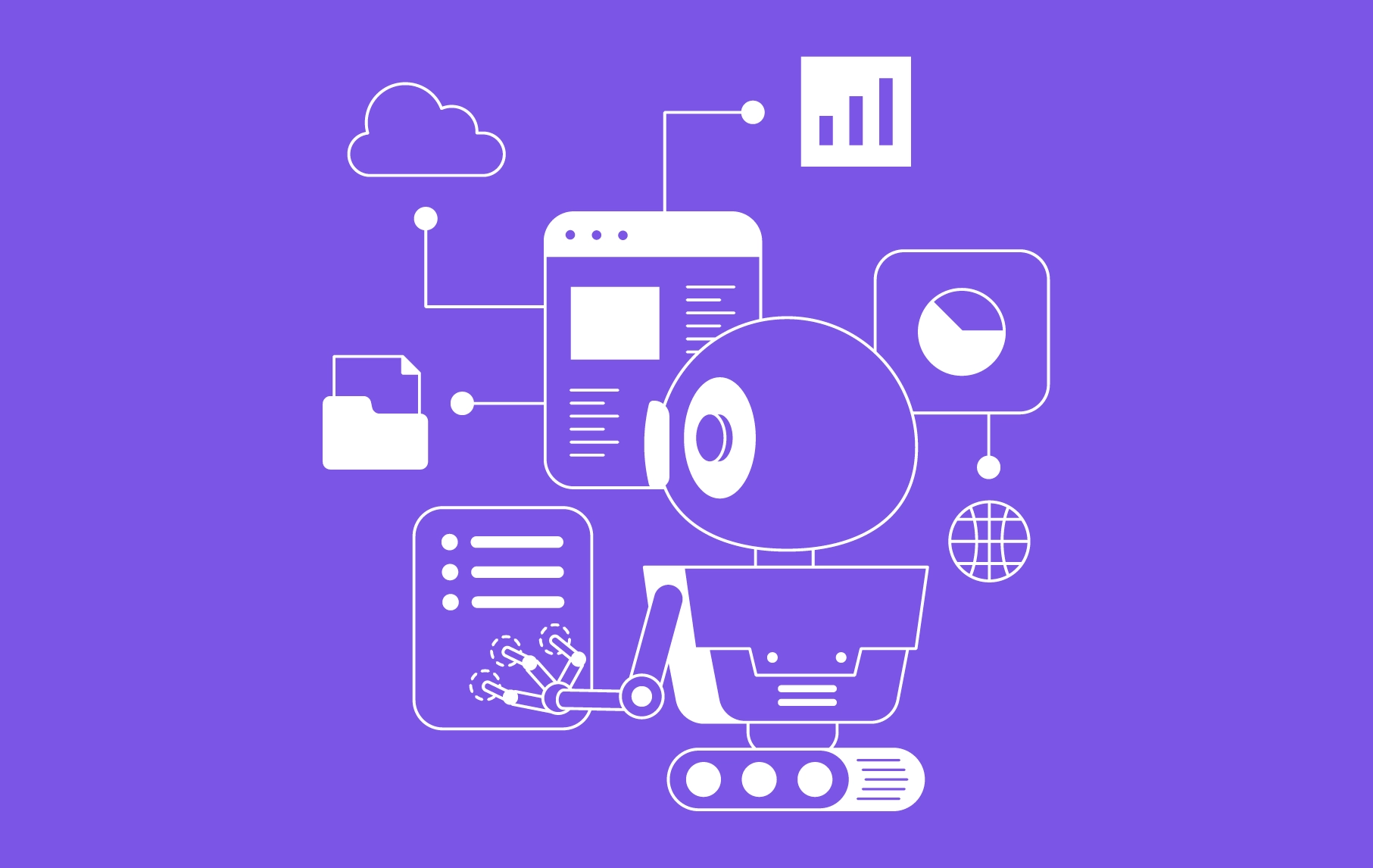As indicated by the Statista report, the artificial intelligence market in marketing is projected to exceed $107.5 billion by the conclusion of 2028.
Marketing with AI is a highly strategic and comprehensive approach that businesses use to engage their target audience and establish strong connections with them. Experts assert that AI marketing is now indispensable as it enables seamless coordination across various marketing channels, optimization of ad targeting, development of customer journey maps, content creation, real-time data analysis, and more.
AI marketing integrates AI technologies to enrich customer experience by delivering relevant and substantial information. By employing artificial intelligence in marketing, businesses can gain unparalleled insights, leading to a deeper understanding of their target audience. Platforms driven by AI in marketing offer significant advantages, driving positive ROI and enhancing marketing strategies. Our assistance involves utilizing state-of-the-art techniques, advanced technological methodologies, and relevant expertise to meet your requirements effectively.
Let’s delve into the ways in which industry experts are leveraging AI for marketing to deliver numerous benefits.
AI in Marketing: Maximizing Benefits for Unmatched Strategic Success
In various industries, AI marketing accelerates business growth, enhances operational efficiencies, fosters collaboration, creates impactful campaigns, and assesses Key Performance Indicators (KPIs). Here are the key advantages that businesses reap when implementing AI in marketing.
Dynamic and Adaptive Marketing Strategies
AI plays a pivotal role in shaping dynamic and adaptive marketing strategies, revolutionizing how businesses engage with their audience. Through predictive modeling, companies can efficiently evaluate customer behaviors and anticipate shifts to align plans with emerging trends. This approach yields benefits such as cost reduction, enhanced decision-making, and improved customer engagement.
Cross-channel Marketing Optimization
Cross-channel marketing focuses on delivering seamless and consistent experiences across various touchpoints, from email and social media to websites and mobile apps. AI can significantly optimize multiple channels like websites and social media, resulting in a more unified and effective customer journey.
AI consolidates valuable insights and creates a unified customer profile. By analyzing the customer journey across all channels, AI accurately attributes touchpoints to conversions, offering valuable insights for future campaign optimization.
Real-time Data Analysis
AI marketing greatly aids businesses in real-time data analysis. By leveraging techniques such as Complex Event Processing (CEP) and stream processing, companies can swiftly identify emerging trends and patterns, such as sudden spikes in interest for new products.
Machine learning algorithms like linear regression and neural networks analyze historical data to recommend products based on individual preferences. Additionally, AI’s Natural Language Processing (NLP) analyzes human sentiments, extracts essential information, and generates reports tailored to their needs, enhancing understanding of the target audience.
Optimized Content Creation
AI has revolutionized content creation by injecting data-driven insights and delivering more effective and targeted content. AI-powered tools recommend specific content formats, such as videos, podcasts, or listicles, based on their performance, catering to audience preferences.
Moreover, leveraging AI for marketing aids in SEO optimization by managing keyword density, readability, and technical SEO issues, conducting grammar checks, and maintaining brand voice consistency across content.
Personalization and Targeting
AI elevates personalization and targeting in marketing by enabling businesses to reach the right audience with the right message at the right time. By analyzing vast customer data, including website behavior and purchase history, AI builds detailed customer profiles. AI algorithms identify micro-segments within the customer base with similar characteristics, enabling tailored marketing messages for each segment. This precise targeting ensures efficiency and relevance, avoiding wasted ad spend.
Competitive Analysis
AI marketing technology transforms competitive analysis by predicting strategic moves. AI tools like social media scraping and web crawlers effortlessly gather data from competitors’ websites, news articles, and industry reports, keeping businesses informed about competitor pricing, new product launches, and more.
AI marketing leverages analytics expertise through NLP and machine learning algorithms to extract key themes from competitor content. It automates competitive benchmarking by comparing KPIs like market share, Customer Acquisition Cost (CAC), and Customer Lifetime Value (CLTV) with competitors. This detailed comparison, visualized through dashboards and reports, highlights businesses’ strengths and weaknesses, facilitating the identification of areas for improvement.
AI in Marketing Use Cases
The impact of AI in marketing extends beyond automation, with businesses strategically leveraging artificial intelligence across various marketing functions. Here are compelling use cases across diverse marketing domains.
Social Media Marketing
Businesses utilize smart algorithms to analyze extensive datasets, enabling personalized content curation, audience targeting, and enhanced customer engagement. AI transforms social media by deciphering trends, user behavior, and sentiments on a larger scale. Companies embrace AI to enhance their social media presence through sentiment analysis, chatbots, and more.
Advertising and Campaign Management
AI revolutionizes advertising and campaign management by leveraging predictive analysis and machine learning algorithms. Companies strategically target audiences, optimize ad placements, and track performance metrics, ensuring efficient resource allocation and improved ROI.
Market Research and Analysis
AI-driven analytics provide valuable insights into customer preferences, competitive landscapes, and market trends. AI-powered marketing accelerates market research by processing extensive data seamlessly, empowering companies to make informed decisions.
Product Recommendations and Chatbots
AI-driven product recommendations enable personalized interactions with users. By evaluating users’ purchase history, preferences, and behavior, businesses offer tailored suggestions, enhancing sales. Chatbots, a prominent AI use case in marketing, elevate customer service by providing instant responses and answering queries, improving user experience.
Content Creation and Personalization
Businesses leverage AI tools to analyze user interactions, enabling real-time content customization to meet individual user expectations. Delivering personalized content fosters stronger customer relationships and nurtures brand loyalty. AI ensures strategic alignment between content and consumers, enhancing user experience in the competitive digital marketing landscape.
Implementation Process for AI in Marketing
Let’s explore the intricate implementation process of AI in marketing, delving into the integration of artificial intelligence technologies into existing frameworks and strategies.
Define Goals and Objectives
Defining AI marketing goals and objectives is crucial. Focusing on campaign performance, user engagement, or user experience provides a roadmap for the AI integration process. Clear objectives guide further steps in AI-powered marketing.
Assess Data and Technology Readiness
Successful AI implementation in marketing hinges on robust data foundations. Assess the accessibility, quality, and quantity of existing data to build an infrastructure supporting AI marketing technology integration.
Choose the Right AI Tools and Solutions
Numerous AI tools cater to diverse AI marketing needs. Conduct thorough market research to identify AI tools that seamlessly integrate with existing systems. Consider factors like compatibility, capacity, and adaptability to align with evolving marketing trends.
Integrate AI into Your Marketing Workflows
Embracing strategic integration is essential for the future of AI in marketing. This may involve data mapping, API integrations, and AI tool configuration. A cohesive marketing ecosystem maximizes the strength and benefits of AI in marketing.
Train and Empower Team
Prepare your marketing team for AI implementation by providing comprehensive training on proficient AI tool usage. Foster a culture of continuous learning to leverage the benefits of AI in digital marketing effectively.
AI in Marketing Examples: Showcasing Cutting-Edge Innovations
Discover how industry leaders leverage AI in marketing to elevate their businesses to new heights and drive profitability.
BuzzFeed
BuzzFeed, a prominent news and entertainment company, strategically employs AI for content creation without replacing human writers. Utilizing tools from OpenAI, the platform aims to deliver personalized content at scale through automation and artificial intelligence. By integrating AI into the quiz experience, brainstorming sessions, and content personalization, BuzzFeed enhances user engagement and tailors experiences through collaborative efforts between human writers and their AI creative assistant, “Buzzy the Robot.”
HubSpot
HubSpot utilizes AI in marketing through two key tools: Content Assistant, for crafting personalized marketing materials, and ChatSpot, a conversational CRM simplifying post-interaction tasks. ChatSpot allows voice commands for follow-up emails and contact creation, enhancing customer interactions.
How Appinventive’s AI Mastery Drives Unparalleled Success in Strategic Marketing Initiatives
Businesses across industries integrate AI to effectively achieve strategic objectives. The advent of AI in marketing revolutionizes how businesses engage with their audience, empowering organizations to enhance their marketing strategies.
Utilizing AI for marketing requires a comprehensive approach focusing on technological aspects, research, planning, a seasoned team, and process evaluation.
Our comprehensive AI development services encompass a wide spectrum, including machine learning and predictive analytics. With a focus on delivering personalized experiences, automating complex tasks, and unveiling profound insights into user behavior, we empower businesses to establish an AI-based marketing platform. Our approach embodies overarching strategies, meeting businesses’ expectations through the transformative potential of artificial intelligence.
FAQs
Q. How can AI enhance marketing strategies?
A. AI enhances marketing strategies by automating tasks, improving operational efficiency, analyzing data for insights, and optimizing campaign effectiveness.
Q. Can AI help in targeted customer segmentation?
A. Data-driven marketing with AI involves leveraging advanced algorithms to analyze extensive datasets, extract valuable insights, and create targeted and effective campaigns.
Q. What steps are involved in implementing AI in marketing processes?
A. Implementing AI in marketing entails assessing organizational needs, selecting suitable AI tools, integrating them into existing systems, and providing team training.






